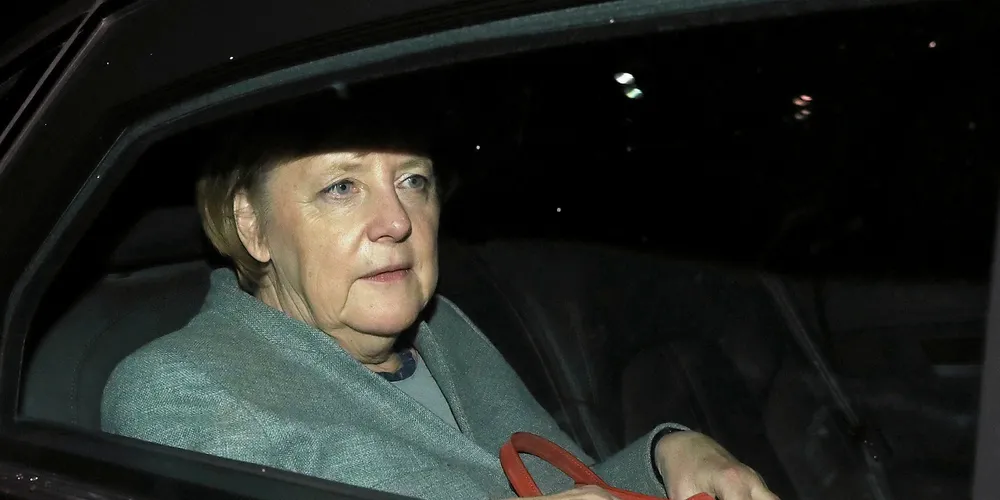German coalition talks collapse dents Energiewende hopes

The collapse of preliminary talks over a new conservative-liberal-green coalition led by Chancellor Angela Merkel diminishes the chances for a faster Energiewende – the transition from nuclear and fossil fuels to renewables in Germany.
Negotiations broke down when the pro-business Free Democrats (FDP) walked out of the talks last night, claiming a lack of trust and of a common plan to modernise Germany between their party, Merkel’s Christian Democrats (CDU), her Bavarian allies from the Christian Social Union (CSU) and the Greens.
Leaders of both the CDU/CSU and the Greens contradicted the FDP’s viewpoint, and said a deal was very close, even on thorny issues such as migration or climate policy.
The Greens’ negotiation style at times needed getting used to, and that of the FDP was very determined, Merkel commented, but added: “We believed that we were on a path that could have led to an agreement.”
During the weekend, a compromise in climate policy seemed close that would have included the closure of about 7GW in coal or lignite-fired generation capacity as the start of a coal exit demanded by the Greens, as well as an end date for combustion engine vehicles by 2040.
While not as fast as the Greens first demanded, such a deal would have triggered an accelerated expansion of wind and solar power in Europe’s largest economy, and been a boost for the renewables industry.
“It means an enormous damage for Germany and Europe if we don’t form a stable government now,” Green Party state premier of Baden-Württemberg, Winfried Kretschmann lamented, adding “we were so close”.
German President Frank-Walter Steinmeier after a meeting with Merkel today in a statement reminded political parties of their responsibility, and said he expects a willingness for talks from all in order to make the formation of a government possible soon.
Steinmeier in coming days will meet the leaders of other parties as well.
There are now three options out of the impasse, at least in theory:
- Merkel theoretically could still convince the Social Democrats (SPD) to agree to re-enter the government and continue the Grand Coalition with the CDU/CSU that had governed Germany for the past four years. But the SPD has already ruled that out, pointing to their party’s bitter defeat in September elections.
- Merkel could form a Scandinavian-style minority government with the Greens, based on only a relative majority of seats in the Bundestag if she fails twice to garner an absolute majority of seats in consecutive votes. Stability-minded post-war Germany has never had a minority government, however, and the Chancellor in that case would need to seek majorities with varying partners on different policy issues. Merkel herself in an interview to the ARD public broadcaster in the afternoon said the President now has to decide on the proceedings, but she is "very skeptical" about a minority government.
- Once Merkel fails to gain an absolute majority of seats in parliament, Steinmeier could also call for new elections. While that is the most likely outcome, critics warn that the inability of democratic parties to form a government could boost the vote of the far-right Alternative for Germany (AfD) party that entered the Bundestag for the first time after the September vote.
Environmental groups in their first reactions have bemoaned the end of the coalition talks.
The conservative-liberal-green alliance has failed because of the “stubborn refusal of the FDP, but also the Union [CDU/CSU] to lead the country in to a sustainable, climate friendly future,” Greenpeace Germany managing director Sweelin Heuss told journalists.
Germany's main renewable energy associations in a joint statement said a compromise for the continuation of the Energiewende in the now collapsed talks had been well discernible, and would have given a boost for a necessary sector coupling to widen the transition to the mobility, heating and industry sectors.
"In the light of a need for a correction of the new tendering system, the urgently necessary correction of [solar] self-consumption [rules] and the other great challenges, the energy sector cannot wait for months for a government that is capable of acting," the note said.
The collapse of the coalition talks harmed renewable energy companies across Europe.
Wind OEM Nordex - which had also been hit by a negative research note by Goldman Sachs - shed 5.15% to €7.27 in mid-afternoon trading in Frankfurt, while rival Siemens Gamesa was down 3.68% to €9.98 in Madrid.
By contrast, German utility RWE that would have been harmed by a coal exit as envisaged by the Greens rose 3.05% to €20.09.